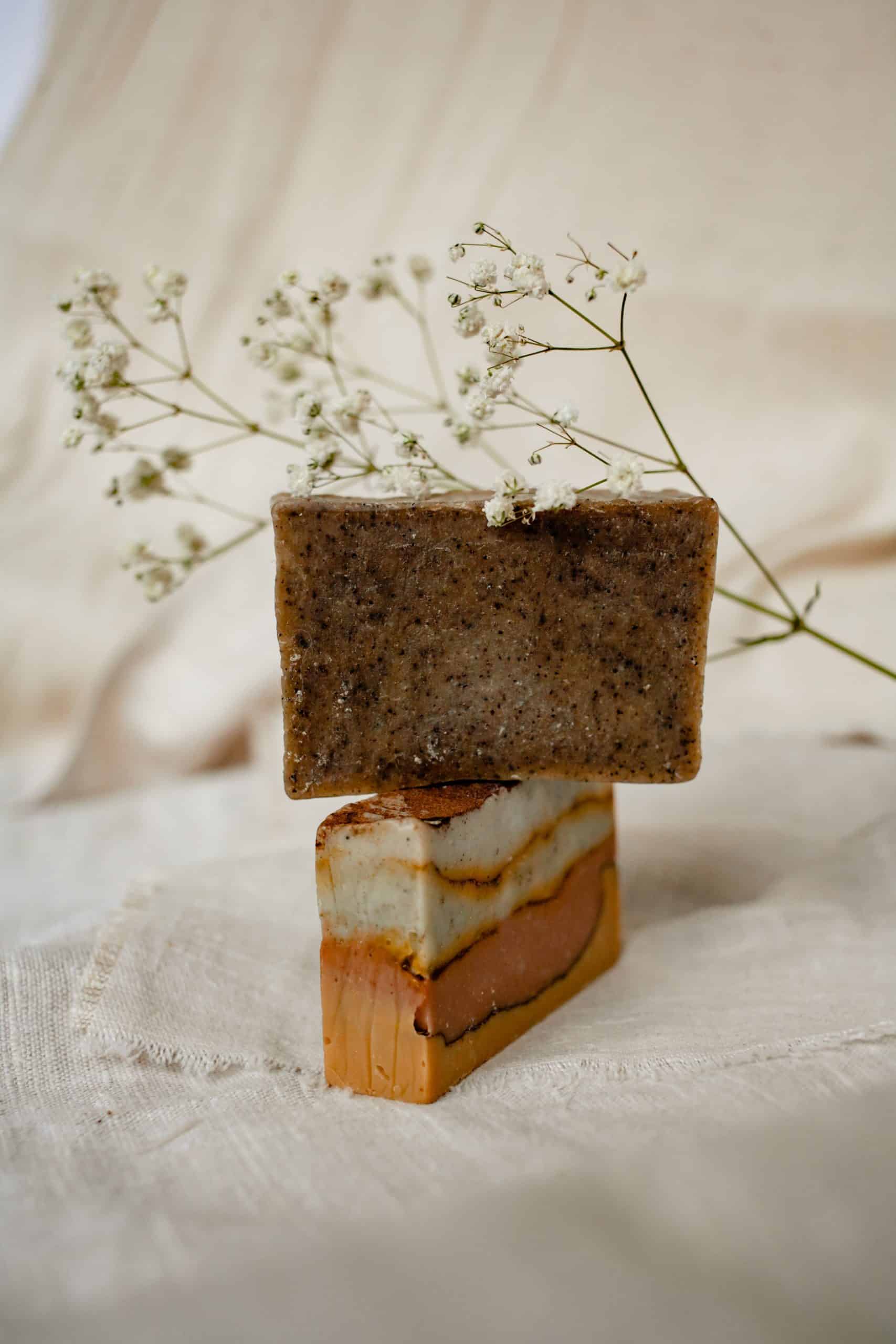Holistic Approaches for Optimal Dog Care is a comprehensive guide that explores the benefits of integrating holistic practices into your furry friend's care routine. With a focus on a physical, mental, and emotional well-being, this article presents a variety of holistic strategies that can help improve your dog's overall health. From nutrition and exercise to alternative therapies and stress reduction techniques, this article will provide you with valuable insights and practical tips to ensure your beloved canine companion receives the highest level of care possible. Whether you're a seasoned dog owner or new to the world of pet care, this article is a must-read for anyone looking to take their dog's well-being to the next level.
Holistic Approaches for Optimal Dog Care
Taking a holistic approach to caring for your dog involves considering their overall well-being, including their physical, emotional, and environmental health. By addressing all these aspects, you can ensure that your furry friend leads a happy and healthy life. In this article, we will explore various holistic practices that you can implement to provide your dog with the best care possible.
1. Diet and Nutrition
Just like humans, dogs require a balanced and nutritious diet to thrive. Providing them with high-quality meals is crucial for their overall health and vitality. A diet that includes a variety of proteins, carbohydrates, and healthy fats will ensure that your dog receives all the essential nutrients they need.
1.1 Balanced and Nutritious Meals
To ensure your dog's diet is well-balanced, incorporate a mix of lean meats such as chicken, turkey, and fish, along with whole grains like brown rice or quinoa. Fresh fruits and vegetables can also be added to provide additional vitamins and minerals. Additionally, it's important to avoid overfeeding and monitor portion sizes to prevent obesity and related health issues.
1.2 Natural and Organic Food Choices
Consider opting for natural and organic food choices for your dog. These options are free from unnecessary additives, preservatives, and chemicals that can potentially harm your pet's health. Look for dog food brands that prioritize high-quality ingredients and avoid artificial colors, flavors, and by-products.
1.3 Adequate Hydration
Proper hydration is essential for dogs, especially during hot weather or after physical activity. Always ensure your dog has access to fresh and clean water throughout the day. You can also include moisture-rich foods like fruits or wet dog food in their diet to help maintain hydration levels.
1.4 Supplements for Optimal Health
Supplements can play a beneficial role in supporting your dog's overall health and addressing specific concerns. Omega-3 fatty acids, for example, can promote a healthy coat and joint function. Consult with your veterinarian to determine if any specific supplements are suitable for your dog's needs.

This image is property of images.pexels.com.
2. Exercise and Physical Activity
Regular exercise and physical activity are essential for your dog's physical and mental well-being. Engaging in regular exercise routines can help maintain their weight, improve cardiovascular health, and prevent behavioral issues associated with pent-up energy.
2.1 Regular Exercise Routine
Establishing a regular exercise routine is key to keeping your dog active and fit. The amount of exercise needed varies depending on your dog's breed, age, and overall health. Daily walks, runs, or play sessions in the yard can be great options for physical activity.
2.2 Outdoor Activities and Socialization
Incorporating outdoor activities into your dog's routine can provide additional mental and physical stimulation. Taking them to the park, for hikes, or to the beach allows them to explore new environments, interact with other dogs, and engage with their natural instincts. These activities promote socialization and help prevent boredom.
2.3 Mental Stimulation and Enrichment
In addition to physical exercise, mental stimulation is crucial for your dog's well-being. Engage them in activities that challenge their minds, such as puzzle toys or obedience training. This mental stimulation helps prevent boredom, reduces anxiety, and keeps their cognitive abilities sharp.
3. Emotional Well-being
Emotional well-being is just as important for dogs as it is for humans. Nurturing a positive and loving environment can significantly contribute to your dog's overall happiness and behavior.
3.1 Positive Reinforcement Training
Positive reinforcement training is a holistic approach that focuses on rewarding desired behaviors instead of punishing unwanted ones. This training method helps build a strong bond between you and your dog while promoting obedience and good manners. It boosts their self-esteem and encourages positive behavior.
3.2 Bonding and Quality Time
Spending quality time with your dog is an essential aspect of their emotional well-being. Engage in activities that strengthen the bond between you and your furry companion, such as cuddling, playing, or simply relaxing together. This quality time helps your dog feel loved, secure, and emotionally fulfilled.
3.3 Stress Management Techniques
Dogs can experience stress, just like humans. It's important to identify and manage any stressors that may affect your dog's emotional well-being. This can include environmental triggers, separation anxiety, or fear of certain situations. Techniques such as aromatherapy, music therapy, or calming pheromone diffusers can help alleviate stress and promote relaxation.
3.4 Creating a Calm Environment
Providing a calm and peaceful environment is vital for your dog's emotional well-being. Avoid exposure to loud noises or chaotic situations that can cause anxiety. Create a designated space for your dog where they can retreat and feel safe, whether it's a cozy crate or a quiet corner in your home.

This image is property of images.pexels.com.
4. Natural Preventive Care
Preventive care plays a crucial role in maintaining your dog's health and well-being. Regular veterinary check-ups, vaccinations, parasite control, and dental care are important components of a holistic approach to dog care.
4.1 Regular Veterinary Check-ups
Scheduling regular visits to your veterinarian is essential for detecting any health issues early on and preventing potential complications. These check-ups allow for thorough examinations, vaccinations, and discussions about your dog's overall well-being.
4.2 Vaccinations and Boosters
Keeping your dog up-to-date with their vaccinations is vital for preventing infectious diseases. Vaccinations protect your dog from potentially life-threatening illnesses such as rabies, distemper, and parvovirus. Consult with your veterinarian to ensure your dog receives the appropriate vaccinations and boosters based on their age and lifestyle.
4.3 Parasite Control Measures
Parasites such as fleas, ticks, and worms can pose significant health risks for dogs. Regularly administer parasite control measures, such as flea and tick preventatives, deworming medications, and heartworm preventatives, as recommended by your veterinarian. This helps protect your dog from infestations and related health problems.
4.4 Dental Care
Maintaining proper dental hygiene is crucial for your dog's oral health and overall well-being. Regular brushing with a natural toothpaste designed for dogs can help prevent dental issues such as tartar buildup and gum disease. Professional dental cleanings performed by a veterinarian may also be necessary to ensure optimal dental health.
5. Alternative Therapies
Alternative therapies can complement traditional veterinary care and provide additional support for your dog's well-being. These therapies focus on holistic healing and addressing the root causes of health issues.
5.1 Acupuncture and Acupressure
Acupuncture and acupressure are ancient healing practices that involve stimulating specific points on your dog's body to promote balance and alleviate various health conditions. These therapies can help with pain management, improve circulation, and enhance the body's natural healing processes.
5.2 Herbal Remedies and Homeopathy
Herbal remedies and homeopathy offer natural alternatives to conventional medications for certain health conditions. Herbs such as chamomile, lavender, and ginger can be used to relieve anxiety, soothe upset stomachs, and promote relaxation in dogs. Homeopathic remedies are also available for a wide range of ailments.
5.3 Massage and Physical Therapy
Massage and physical therapy techniques can provide numerous benefits for dogs, such as pain relief, improved mobility, and relaxation. Gentle massaging techniques can help alleviate muscle tension, promote blood circulation, and reduce stress. Physical therapy exercises, such as hydrotherapy or range of motion exercises, may be beneficial for dogs recovering from injuries or with mobility issues.
5.4 Energy Healing Techniques
Energy healing techniques, such as Reiki or therapeutic touch, focus on balancing the energetic aspects of your dog's body to support overall well-being. These practices promote relaxation and help release any blockages or imbalances that may be contributing to physical or emotional issues.

This image is property of images.pexels.com.
6. Environmental Considerations
Creating a safe and stress-free environment is essential for your dog's overall well-being. Consider these environmental considerations for optimal dog care.
6.1 Non-toxic and Eco-friendly Products
When selecting products for your dog, opt for non-toxic and eco-friendly options. This includes choosing natural cleaning products, pet-safe detergents, and organic materials for bedding and toys. Avoid products that contain harmful chemicals or artificial ingredients that can potentially harm your dog's health.
6.2 Safe and Comfortable Living Spaces
Ensure your dog has a safe and comfortable living space that meets their specific needs. Provide them with a cozy bed, access to fresh water, and a secure area where they can rest undisturbed. Consider temperature control and provide suitable ventilation to keep their living space comfortable.
6.3 Reducing Environmental Stressors
Identify and minimize environmental stressors that may affect your dog's well-being. This can include loud noises, construction activities, or exposure to harmful substances. Minimize their exposure to these stressors and create a calm environment where they can feel secure and relaxed.
7. Holistic Grooming Practices
Grooming is an essential aspect of dog care, and incorporating holistic practices can enhance their grooming experience and promote their well-being.
7.1 Natural and Chemical-free Products
Choose grooming products that are natural, chemical-free, and safe for your dog's skin and coat. Look for shampoos, conditioners, and grooming sprays that contain natural ingredients like aloe vera, oatmeal, or coconut oil. These products are gentle on the skin and coat, helping maintain their natural balance and overall health.
7.2 Regular Bathing and Brushing
Regular bathing and brushing help maintain a healthy coat and skin. The frequency of bathing depends on your dog's breed and activity level. Brushing not only removes loose hair and prevents matting but also stimulates blood circulation and distributes natural oils, giving your dog's coat a healthy shine.
7.3 Paw and Nail Care
Proper paw and nail care are vital for your dog's comfort and overall well-being. Regularly check your dog's paws for any cuts, sores, or foreign objects. Keep their nails trimmed to a comfortable length, avoiding overgrowth that can cause pain or discomfort. If you're unsure about nail trimming, consult a professional groomer or veterinarian.
7.4 Ear and Eye Cleaning
Regularly clean your dog's ears and eyes to prevent infections and maintain good hygiene. Use a gentle ear cleaner recommended by your veterinarian to remove dirt or excess wax. Be cautious not to insert anything into the ear canal that could damage their delicate structures. For eye cleaning, use a damp cloth or a specifically formulated eye cleaner to wipe away any debris.
8. Holistic Dental Care
Maintaining proper dental hygiene is crucial for your dog's oral health and overall well-being. Implementing holistic dental care practices helps prevent dental issues and promotes overall dental health.
8.1 Natural Toothpaste and Oral Rinses
Use natural toothpaste formulated specifically for dogs to brush their teeth regularly. Avoid using human toothpaste, as it can contain ingredients that are toxic to dogs. Additionally, oral rinses designed for dogs can help control bacteria and freshen their breath.
8.2 Brushing and Dental Chews
Regular brushing is the most effective way to remove plaque and prevent dental issues. Aim to brush your dog's teeth at least two to three times a week, using a soft-bristled toothbrush or a finger brush. Dental chews made from natural materials, such as rawhide or dental-specific treats, can also promote dental health by reducing plaque buildup.
8.3 Professional Dental Cleanings
Despite regular dental care at home, professional dental cleanings performed by a veterinarian may still be necessary. These cleanings involve scaling and polishing your dog's teeth to remove stubborn tartar and plaque. Professional cleanings help maintain optimal oral health and prevent serious dental problems.
10. Holistic Aging and Longevity
As your dog ages, it becomes even more important to prioritize their well-being and address their changing needs. Implementing holistic practices can help your dog age gracefully and enjoy a high quality of life.
10.1 Healthy Aging Diets
Switching your dog to a specially formulated senior diet can provide the necessary nutrients for their aging bodies. These diets typically include lower calories, joint support ingredients, and antioxidants to support their overall health as they age. Consult with your veterinarian to determine the appropriate diet for your senior dog.
10.2 Joint Care and Mobility Support
Joint care becomes a crucial aspect of your dog's well-being as they age. Incorporate supplements that support joint health, such as glucosamine and chondroitin, into their diet. Providing them with comfortable bedding and minimizing high-impact activities can also help protect their aging joints.
10.3 Cognitive Stimulation
Cognitive stimulation is important for senior dogs to maintain mental sharpness and prevent cognitive decline. Engage them in interactive toys, puzzle games, or obedience training to keep their minds active and engaged. Mental stimulation can help slow down cognitive aging and promote their overall well-being.
10.4 Regular Health Monitoring
As your dog ages, it's crucial to monitor their health regularly. Schedule more frequent vet check-ups to ensure any age-related health issues are detected early. Regular monitoring of their weight, appetite, and energy levels can also help identify potential concerns and allow for timely intervention.
By incorporating these holistic approaches into your dog's care routine, you can provide them with a well-rounded and comprehensive approach to their health and happiness. Remember to consult with your veterinarian when implementing any new practices to ensure they are suitable for your dog's specific needs. With your loving care and attention, your dog will be able to enjoy a long and fulfilling life.


